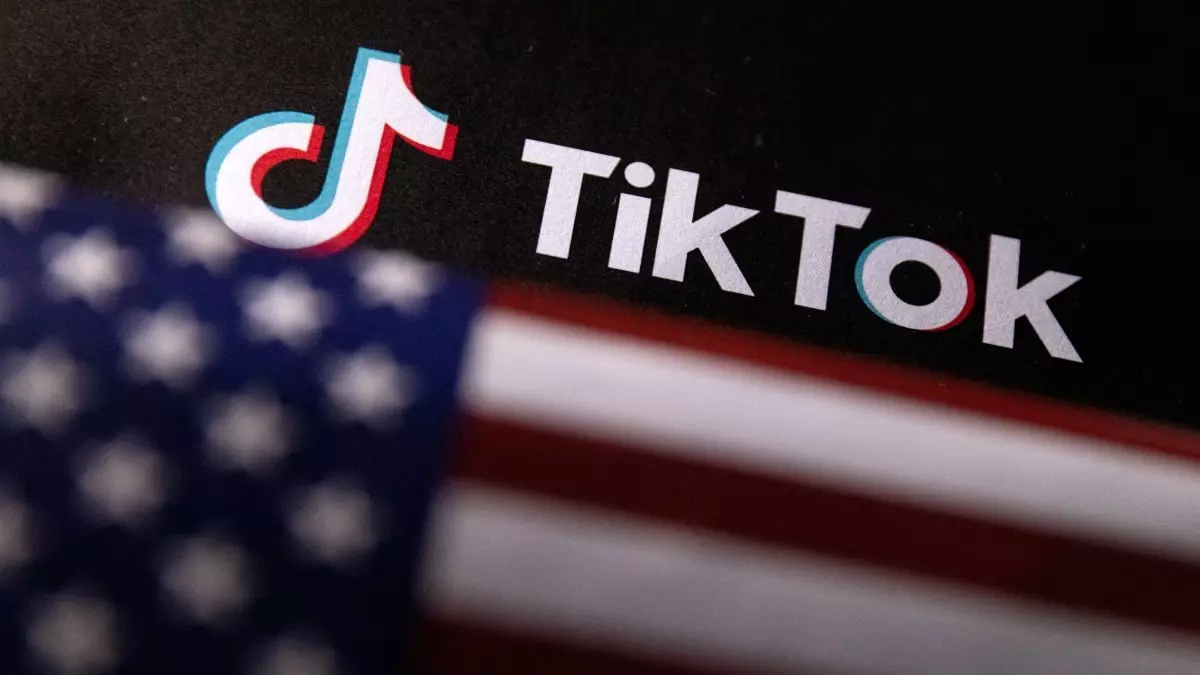In a dramatic turn of events, TikTok has made its return to Apple and Google’s app stores in the United States following a brief period of uncertainty. Featured prominently in the ongoing dialogue surrounding digital privacy and national security, the app, owned by Chinese firm ByteDance, found itself at the center of a political and legal maelstrom. President Donald Trump’s decision to delay a ban on TikTok has momentarily eased tensions and allowed the app to maintain its foothold among American users, a demographic that has made TikTok one of the most popular social media platforms in the country.
A critical law enacted earlier this year mandated ByteDance to either divest its U.S. operations or confront a potential ban on its app. The stakes were elevated when Trump signed an executive order extending the deadline for compliance by an additional 75 days, offering a temporary reprieve for both the app and its users. Yet, despite the assurances from the Trump administration, the app remained absent from the digital storefronts of major tech giants until they received explicit guarantees against penalties for hosting the application.
The Role of Big Tech in the TikTok Saga
The relationship between TikTok and the major app stores represents a complex interplay between policy, market forces, and consumer behavior. Analysts suggested that the hesitancy of Google and Apple to reinstate TikTok could stem from a careful consideration of the potential legal ramifications they might face should the situation deteriorate. The companies, which are already heavily scrutinized for their monopolistic practices, seemed to want to ensure that their participation in the distribution of TikTok would not expose them to any legal vulnerabilities.
At stake is not just TikTok’s presence in the U.S. market, but also the fate of billions in potential revenue derived from app downloads. TikTok recorded over 52 million downloads in 2024, highlighting its popularity despite the looming threat of a ban. The platform has effectively captured the engagement of millions, contributing to the complex ecosystem of digital content and advertisement. For both Google and Apple, decisions made about TikTok could have ramifications extending beyond this single app.
The U.S. government’s concerns surrounding TikTok have been framed largely around national security, stemming from fears that the Chinese government could access user data for malicious purposes. Following Biden’s signing of the law concerning the app’s U.S. operations, the narrative surrounding TikTok has intensified, ratcheting up scrutiny of Chinese-owned apps and pushing narratives around data privacy and citizen security to the forefront of political discourse.
However, the implications of banning a major social media platform raise significant questions about free speech and the government’s role in regulating technology. While the potential risks tied to foreign ownership warrant discussion, it becomes essential to consider the impact that an outright ban or forced sale could have on users and the broader social media landscape. TikTok has catalyzed dialogues on data privacy, leading to a wider examination of how all users’ data is handled by tech companies, irrespective of their country of origin.
The uncertainty surrounding TikTok’s ownership has spurred interest from various potential buyers, further complicating the narrative. Individuals like Frank McCourt, former Los Angeles Dodgers owner, have been linked to potential purchases, showcasing the perceived value of TikTok—a business that some estimate to be worth upwards of $50 billion. The prospect of a transaction introduces a new layer of intrigue and speculation about how TikTok might operate under different management, and what implications this could have on its user base.
Trump’s assertion that the 75-day deadline could be extended adds yet another dimension to the ongoing saga. As stakeholders from various sectors—government, tech producers, and users—grapple with the complexities of the situation, the future of TikTok in the U.S. remains uncertain. With multiple factors at play, from ownership transitions to legislative decisions, the app stands at a crossroads, reflecting larger debates about technology, security, and international relations in an increasingly interconnected world.
In this climate of uncertainty, the ultimate fate of TikTok in the U.S. will likely shape the way we conceptualize both the power of social media and the implications of foreign ownership under the ever-watchful eyes of national security considerations.


Leave a Reply